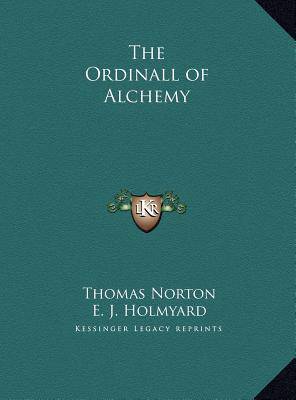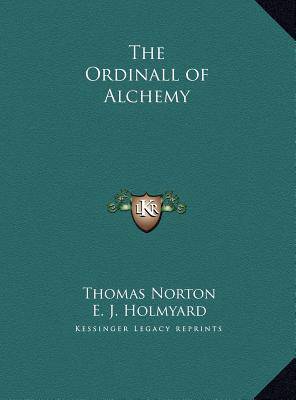
- Retrait gratuit dans votre magasin Club
- 7.000.000 titres dans notre catalogue
- Payer en toute sécurité
- Toujours un magasin près de chez vous
- Retrait gratuit dans votre magasin Club
- 7.000.0000 titres dans notre catalogue
- Payer en toute sécurité
- Toujours un magasin près de chez vous
Description
The Ordinall of Alchemy is a book written by Thomas Norton, a prominent alchemist in the 15th century. The book is a guide to the practice of alchemy, a medieval science that sought to transform base metals into gold and discover the elixir of life. The Ordinall of Alchemy is divided into seven parts, each of which covers a different aspect of the alchemical process. The first part discusses the basic principles of alchemy, including the nature of metals and the role of the philosopher's stone. The second part focuses on the preparation of the alchemical laboratory and the tools needed for the practice. The third part covers the preparation of the prima materia, the raw material that is transformed into gold. The fourth part discusses the process of purification, which is necessary to remove impurities from the prima materia. The fifth part covers the process of transformation, in which the purified prima materia is transformed into gold. The sixth part discusses the elixir of life, which was believed to grant immortality to those who consumed it. The final part of the book is a collection of alchemical recipes and instructions for making various substances. The Ordinall of Alchemy is an important work in the history of alchemy and provides insight into the beliefs and practices of medieval alchemists.1929. Being a facsimile reproduction from Theatrum Chemicum Britannicum, written in 1652, with annotations by Elias Ashmole. The historian may find small value in the Ordinall as a chemical document, however its sprightliness of style, its somewhat archaic, yet not difficult, language, and its atmosphere of romance, combine to make it a delightful book to read. The Ordinall is written in Old English text.This scarce antiquarian book is a facsimile reprint of the old original and may contain some imperfections such as library marks and notations. Because we believe this work is culturally important, we have made it available as part of our commitment for protecting, preserving, and promoting the world's literature in affordable, high quality, modern editions, that are true to their original work.
Spécifications
Parties prenantes
- Auteur(s) :
- Editeur:
Contenu
- Nombre de pages :
- 118
- Langue:
- Anglais
Caractéristiques
- EAN:
- 9781169701694
- Date de parution :
- 10-09-10
- Format:
- Livre relié
- Format numérique:
- Genaaid
- Dimensions :
- 216 mm x 279 mm
- Poids :
- 566 g

Les avis
Nous publions uniquement les avis qui respectent les conditions requises. Consultez nos conditions pour les avis.






